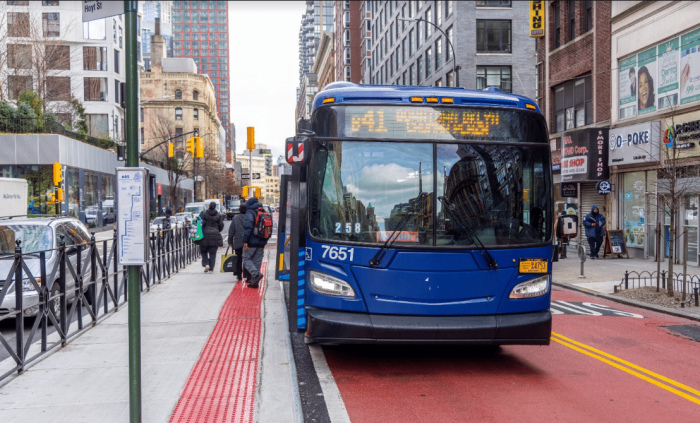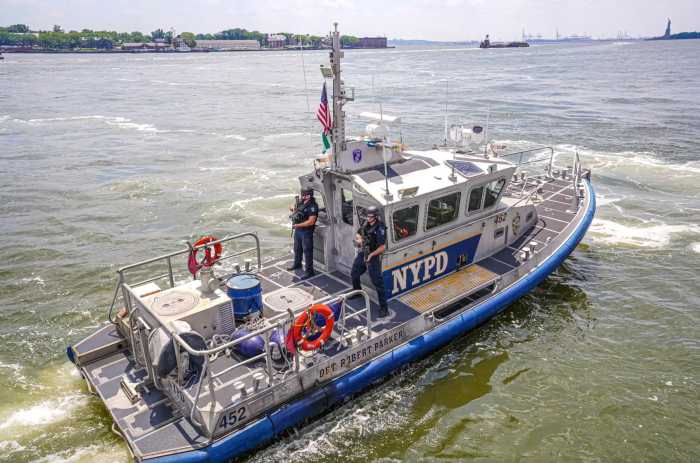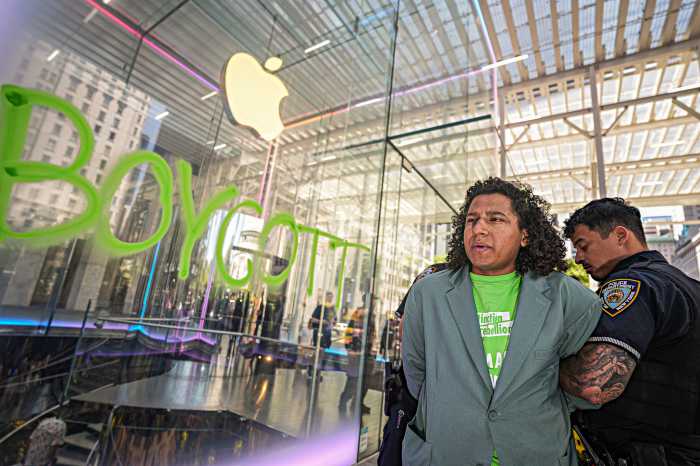For the 3,051 children who lost a parent in the Sept. 11 terror attacks, the grief has echoed through the last 17 years.
Reminders of their loss can appear in subtle ways; in times of sorrow and frustration or joy and triumph. How they cope with it varies widely and deeply.
Jessica Wisniewski was just shy of 6 years old when her grandparents took her and her siblings out of school on that bright, clear Tuesday morning. She remembers how tense her grandparents were while sitting at the kitchen table and watching the television as their world crumbled around them.
Wisniewski, now 23 and living on the Upper East Side, said it wasn’t until her mother sat her down and said her father wasn’t coming home that she began to realize the magnitude of what had happened to her family. But even then, it was hard for her to understand what that truly meant.
“It’s sort of something that you have to live and experience for it to sink in,” she said. “I think dealing with grief, especially the loss of a parent, is not something you really get over. It’s just something that you learn to live with.”
‘Grief is as personal as you are’
Edy Nathan, a Manhattan psychotherapist and author who specializes in grief and trauma, said learning to live with grief is the final phase in her philosophy on coping with loss and trauma.
“When you think of a phase, it kind of moves in and out. So there’s no one right way to go through these phases,” she added.
But with the memory of the attacks kept alive in many ways year after year, the family members of those who died on 9/11 have been thrust into a unique journey in coping with their grief, Nathan said.
“This was a national grief and that is sometimes very hard to separate from the personal grief, the loss of someone who walked out the door and was never to return,” she added.
There is no right or wrong way to grieve, Nathan said, and what is healthy for one person may not be healthy for another. Often Nathan will ask whether a client views themselves as an introvert, extrovert or somewhere in between, because understanding who you are as a person is important in choosing the best way of coping.
“Grief is as personal as you are; it’s kind of like your fingerprint,” she added.
While group counseling or serving in a volunteer corps might help an extrovert cope with the death of a loved one, introverts might find more solace through meditating, journaling or one-on-one counseling, Nathan said.
“How are you going to live with it so that it doesn’t become an obstacle in your life, so you can still be full and laugh and have joy and pay the life of the loved one forward,” she added.
Acknowledging the loss in small ways, like laughing at a joke they would have found funny or creating a meal they would have liked, doesn’t mean a person is hanging onto their grief but rather they’re choosing to honor the one they lost.
Wisniewski said talking about her father and learning as much about him as she can helps her celebrate his life.
Alan Wisniewski, 47, worked for the investment banking firm Sandler O’Neill on the 104th floor of the World Trade Center’s south tower.
“He was a huge Notre Dame fan. We had Notre Dame gear all over the house,” she said. “He worked pretty late hours, so we would try to stay up late to see him before we had to go to bed.”
In the moments when the reality of her loss hits her unexpectedly, Wisniewski said she tries to give herself time and space to process feelings that “never really go away.”
Many of the children of 9/11 victims find themselves honoring their lost parent in their work as adults, according to Nathan, whether that means becoming a police officer or a firefighter or helping survivors in some other capacity.
“They are very much into coping with their loss and coping with their grief by making it into a gift and gifting what they lost into something that is bigger than themselves,” she said.
After graduating from New York University, Wisniewski said she found herself working at a personal injury law firm that specializes in the James Zadroga 9/11 Health and Compensation Act for first responders.
“Something that mattered to me when I was graduating was working for a cause that is near and dear to my heart and while I didn’t expect it to be so close to me and 9/11 related, I’m really happy there,” she said. “I’m very honored to be helping people who selflessly ran into danger not knowing what would happen. I know a lot of the first responders were trying to help people like my dad, so it’s very meaningful to me to be helping these people.”
Focusing on families’ long-term needs
Wisniewski is also a former junior board member for Tuesday’s Children, a nonprofit dedicated to helping the families of 9/11 victims.
Tuesday’s Children works with “carefully selected” partners to offer a host of programming — from youth support and counseling to wellness and community service — for the families, but the core message is that the organization will be there for as long as they are needed, executive director Terry Sears said.
Of the 3,051 children who lost a parent in the attacks, Sears pointed out that 109 were not even born before 9/11. The youngest are 16 going on 17 years old.
“This was unprecedented, so no one knew what the needs would be long-term,” she said of how Tuesday’s Children came to be. “We came in and said, ‘we’ll be here for at least 18 years or until you don’t need us anymore.’”
Seventeen years later, Tuesday’s Children continues to offer programming, however, Sears said, it has evolved over time as the needs of the children and parents have changed.
Now that the children are getting older, the organization is putting together programs related to college and career, leadership and empty nest syndrome.
“We try to build resilience and strength in the families,” Sears said. “Grief takes a lifetime, and I think that people have secondary losses and bumps in life and that’s when they miss their parent.”
Who the organization serves has also expanded to include children of 9/11 first responders and post-9/11 military families.
Sears said they try to bring the various groups together whenever possible, including a life management program run by 9/11 widows for military widows.
“It allows them to be part of something as a community, and I think that’s very important,” she added.
As the anniversary of 9/11 approaches, Sears said they try to take the kids to professional baseball or football games. One year, they had some of the children ring the bell at the New York Stock Exchange.
The families of 9/11 victims memorialize the anniversary in different ways, Nathan said. Some may choose to go on vacation or visit a place that was special to their loved one. Others may host a family barbecue or attend the 9/11 Memorial and Museum ceremony in lower Manhattan.
Wisniewski said her family tries to get together every year and tell stories of her father. She also visits the 9/11 Memorial pools in lower Manhattan when she can.
“We went when we were younger; me and my sister read my dad’s name,” she added.
Of the grief that lingers, even after 17 years, Nathan said she hopes that many of the people who lost a loved one on 9/11 have been able to move into a life that is satisfying.
“I don’t think that anyone goes through a sense of loss or trauma without it being a journey of self-discovery; and learning how strong you are; learning about parts of yourself that you never knew existed; learning what you are capable of,” she added. “And that there are gifts in grief and loss and trauma that we cannot imagine and yet, they do present themselves if we listen.”




































